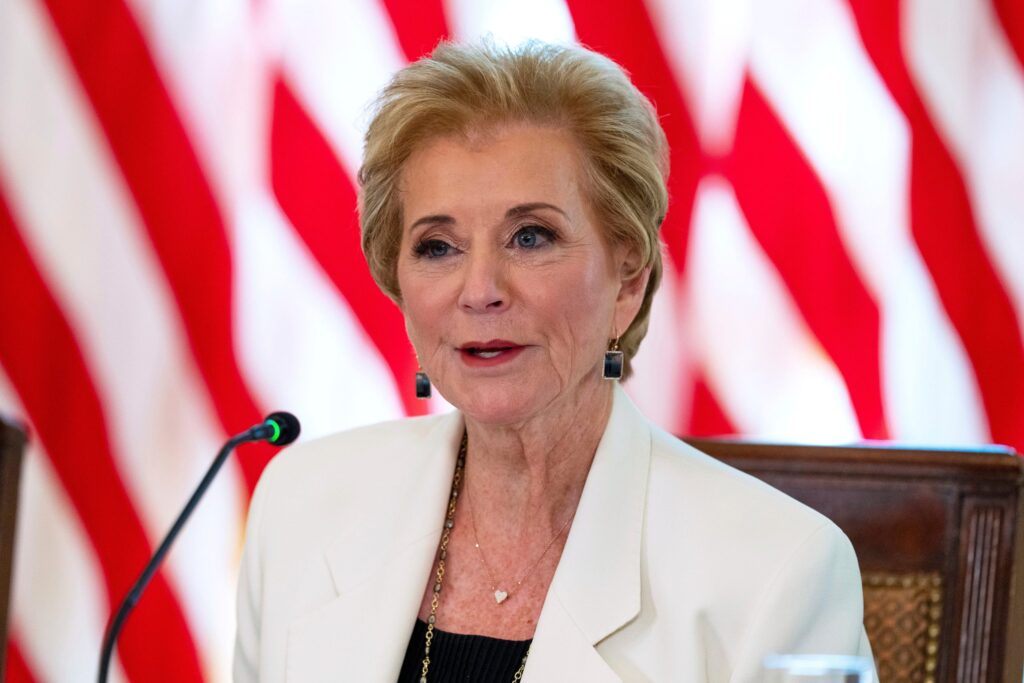I recently read of the death of a young man with significant disabilities who I had known. On Facebook there was an outpouring of heartfelt responses to his passing and how he would be missed in the Upper Valley.
As an educator in Vermont for over 50 years, I suggest that such an outpouring of care and support would not have happened 50 years ago, fully recognizing that Facebook did not exist at that time. That young man might well have been in a state institution, isolated from family and community, or with a family isolated from the community because of the lack of special education services and inclusive practices in our public schools and community-based services. The parents might have had to rely on public agencies, unable to work because of the absence of dedicated educational and community services for their child.
To suggest, as the current federal director of the Department of Education (DOE) has, that states and communities no longer need coordinated federal support at all levels in education is astonishing. This reflects either a profound lack of knowledge of what the DOE, and state and local public education together have accomplished and can further accomplish for children with disabilities with adequate funding.
Among other tasks the DOE has worked with states on are:
· Tracking school district and state compliance with the Individuals with Disabilities Act (IDEA) since 1975. IDEA requires that each child with a suspected disability be evaluated by a knowledgeable team that can assess learning needs and is required to develop a targeted individualized education plan that addresses the areas where learning is impacted. Necessary related services such as physical and occupational therapy must be included in the plan.
· Parents are members of the special education team for their child and must be included in the decision-making processes and responded to appropriately.
· The federal DOE also invests in educational research to address children’s needs and to address professional development needs for educators. Universities and colleges are eligible for grants to address pressing research needs and to disseminate these findings.
· Data collected by the DOE helps inform updated practice and supports. Currently 50% of special educators nationally stay in that profession for less than five years. It takes several years to become a practiced professional. The amount of documentation needed to confirm compliance with the law, many meetings and large caseloads deters many special educators from continuing in the profession. Criticism of public educators, low wages compared to others with similar educational degrees and collaboration efforts with multiple education and community professionals place additional demands on special educators. Additionally, without targeted support to universities and colleges regarding best practice, the training of special educators will be compromised.
· The Individuals with Disabilities Act also promotes early access to evaluation and education for children birth through age five. This allows for access to appropriate and intensive interventions that were unavailable 50 years ago and has over time promoted intellectual, language and physical development unimaginable at that time.
· I knew children who were completely excluded from public education until the federal education law was passed in 1975 and, even then, in my experience there were public schools that were very reluctant to enroll these children. Without the force of federal law their admission throughout the United States would not have happened nor continued. Literally millions of children with disabilities were excluded from public and private schools.
So much of disability is about the public’s response to children who do not appear to act “normally.” We are so often actually disabled ourselves because of our own prejudice and false assumptions or fears. I remember well in my first years as co-director of a program serving children with severe disabilities that the parents of these children felt isolated and that community members would walk down a different aisle in the grocery store from the parent with a disabled child because they didn’t know what to say or do. That this has changed is a tribute to federal and state law, public school work and parent advocacy.
The reality of the progress we’ve made in this country for children with disabilities and their families points the way decisively to providing the national level of leadership and research seen at the Department of Education in the Office of Special Education Programs these last 50 years. Abandoning this federal role is shortsighted.
Additionally, it is unclear why, after all this educational and community progress has been made in embracing children with disabilities in schools and the larger community, the federal DOE would consider handing over to the Centers for Disease Control the education of children with disabilities. Re-pathologizing the educational and developmental needs of children with disabilities is stigmatizing and a giant step backwards. Health care is a partner with public schools and not a replacement for educational research and oversight at the national level.
Please write your congressional representatives to alert them to the dangers of dismantling the DOE. An earlier reduction in force was followed by the recent elimination of 466 jobs. According to the Council of Administrators of Special Education (CASE) a national organization advocating for the needs of students with disabilities, the result is that the DOE’s Office of Special Education Programs (OSEP) will be left with only two staff persons “…to ensure proper implementation of the IDEA through monitoring, technical assistance and other supports to states and, in turn, to local districts.”
We must move together as a country to expand the full participation of children and young adults with disabilities in an informed, committed way that honors the humanity of each child and adult with disabilities and honors our duty as a country, state and community to embrace all our neighbors.
Jo-Anne Unruh is a retired special educator, administrator and executive director of the Vermont Council of Special Education Administrators. She lives in Hartford.

